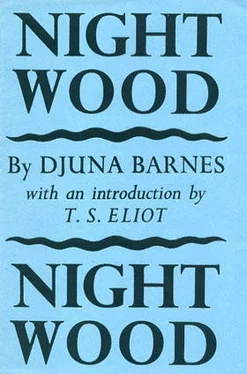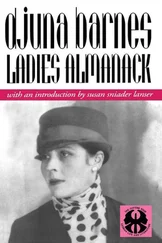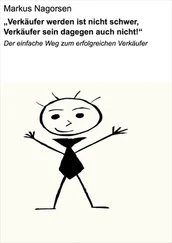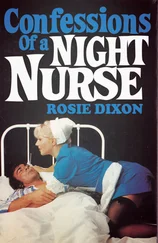‘Order the carriages!’ she cried. ‘Immediately! We will go driving, we need a little air!’ She turned her back and spoke in agitation. ‘Yes, yes,’ she said, ‘The carriages! It is so close in here!’
‘What carriages?’ said the doctor, and he looked from one to the other. ‘What carriages?’ He could hear the maid unlocking the front door, calling out to the coachmen. He could hear the clear ringing sound of wheels drawn close to the curb and the muttered cries of a foreign voice. Robin turned around and said, a malign gentle smile on her mouth, ‘Now she is in a panic, and we will have to do something.’ She put her glass down and stood, her back to the room, her broad shoulders drawn up, and though she was drunk, there was a withdrawal in her movement, and a wish to be gone.
‘She will dress up now,’ she said. She leaned back against the piano, pointing with the hand that held her glass. ‘Dress up, wait, you will see.’ Then she added, thrusting her chin forward so that the cords in her neck stood out: ‘Dress up in something old.’
The doctor, who was more uncomfortable perhaps than anyone in the room and yet who could not forbear scandal, in order to gossip about the ‘manifestations of our time’ at a later date, made a slight gesture and said, ‘Hush!’ And sure enough, at that moment, Jenny appeared in the doorway to the bedroom, got up in a hoop, a bonnet and a shawl, and stood looking at Robin who was paying no attention to her, deep in conversation with the child. Jenny with the burning interest of a person who is led to believe herself a part of the harmony of a concert to which she is listening, appropriating in some measure its identity, emitted short, exclamatory ejaculations.
There were, it turned out, three carriages in all, those open hacks that may still be had in Paris if they are hunted up in time. Jenny had a standing order with them and when they were not called upon still they circled about her address, like flies about a bowl of cream. The three cabbies were hunched up on their boxes, their coats about their ears, for though it was an early autumn night, it had become very chilly by twelve o’clock. They had been ordered for eleven and had been sitting on their boxes for the past hour.
Jenny, cold with dread lest Robin should get into one of the other carriages with a tall slightly surprised English girl, seated herself in the farthest corner of the foremost fiacre and called, ‘Here, here,’ leaving the rest of the guests to dispose of themselves. The child, Sylvia, sat across from her, the ragged gray rug held in two clenched hands. There was a great deal of chattering and laughter, when to her horror Jenny saw that Robin was moving toward the second carriage in which the English girl had already seated herself. ‘Ah no, no!’ Jenny cried, and began beating the upholstery, sending up a cloud of dust. ‘Come here,’ she said in an anguished voice, as if it were the end of her life, ‘Come here with me, both of you,’ she added in a lowered and choking tone; and assisted by the doctor, Robin got in, the young Englishwoman, to Jenny’s consternation, taking the seat by her side.
Doctor O’Connor now turned to the driver and called out: ‘Ecoute, mon gosse, va comme si trente-six diables étaient accrochés à tes fesses!’ Then waving his hand in a gesture of abandon, he added: ‘Where to but the woods, the sweet woods of Paris! Fais le tour du Bois!’ he shouted, and slowly the three carriages, horse behind horse, moved out into the Champs Elysées.
Jenny, with nothing to protect her against the night but her long Spanish shawl, which looked ridiculous over her flimsy hoop and bodice, a rug over her knees, had sunk back with collapsed shoulders. With darting, incredible swiftness, her eyes went from one girl to the other, while the doctor, wondering how he had managed to get himself into the carriage which held three women and a child, listened to the faint laughter from the carriages behind, feeling, as he listened, a twinge of occult misery. ‘Ah!’ he said under his breath. ‘Just the girl that God forgot.’ Saying which, he seemed to be precipitated into the halls of justice, where he had suffered twenty-four hours. ‘Oh, God help us,’ he said, speaking aloud, at which the child turned slightly on her seat, her head, with large intelligent eyes directed toward him, which had he noticed, would have silenced him instantly (for the doctor had a mother’s reverence for childhood.) ‘What manner of man is it that has to adopt his brother’s children to make a mother of himself, and sleeps with his brother’s wife to get him a future—it’s enough to bring down the black curse of Kerry.’
‘What?’ said Jenny in a loud voice, hoping to effect a break in the whispered conversation between Robin and the English girl. The doctor turned up his coat collar.
‘I was saying, madame, that by his own peculiar perversity God has made me a liar—’
‘What, what is that you say?’ demanded Jenny, her eyes still fixed on Robin so that her question seemed to be directed rather to that corner of the carriage than to the doctor.
‘You see before you, madame,’ he said, ‘one who was created in anxiety. My father, Lord rest his soul, had no happiness of me from the beginning. When I joined the army he relented a little because he had a suspicion that possibly in that fracas which occasionally puts a son on the list of “not much left since", I might be damaged. After all, he had no desire to see my ways corrected with a round of buckshot. He came into me early in the dawn as I lay in my bed, to say that he forgave me, and that indeed he hoped to be forgiven; that he had never understood, but that he had, by much thought, by heavy reading, come back with love in his hand, that he was sorry, that he came to say so; that he hoped I could conduct myself like a soldier. For a moment he seemed to realize my terrible predicament: to be shot for man’s meat, but to go down like a girl, crying in the night for her mother. So I got up in bed on my knees and crawled to the foot where he stood, and cast my arms about him and said, “No matter what you have done or thought, you were right, and there’s nothing in my heart but love for you and respect."’
Jenny had shrunk into her rug and was not listening. Her eyes followed every movement of Robin’s hand, which was laid now on the child’s hand, now stroking her hair, the child smiling up into the trees.
‘Oh,’ said the doctor, ‘for the love of God!’
Jenny began to cry slowly, the tears wet, warm, and sudden in the odd misery of her face. It made the doctor sad, with that unhappy yet pleasantly regrettable discomfort on which he usually launched his better meditations.
He remarked, and why he did not know, that by weeping she appeared like a single personality, who, by multiplying her tears, brought herself into the position of one who is seen twenty times in twenty mirrors—still only one, but many times distressed. Jenny began to weep outright. As the initial soft weeping had not caught Robin’s attention, now Jenny used the increase and the catching in her throat to attract her, with the same insistent fury one feels when trying to attract a person in a crowded room. The weeping became as accurate as the monotonous underplay in a score, in spite of the incapacity of her heart. The doctor, sitting now a little slumped forward, said, in an almost professional voice (they were now long past the pond and the park, and were circling back again, toward the lower parts of town), ‘Love of woman for woman, what insane passion for unmitigated anguish and motherhood brought that into the mind?’
‘Oh, Oh,’ she said, ‘Look at her!’ She abruptly made a gesture toward Robin and the girl, as if they were no longer present, as if they were a vista passing out of view with the movement of the horses. ‘Look, she brings love down to a level!’ She hoped that Robin would hear.
Читать дальше












